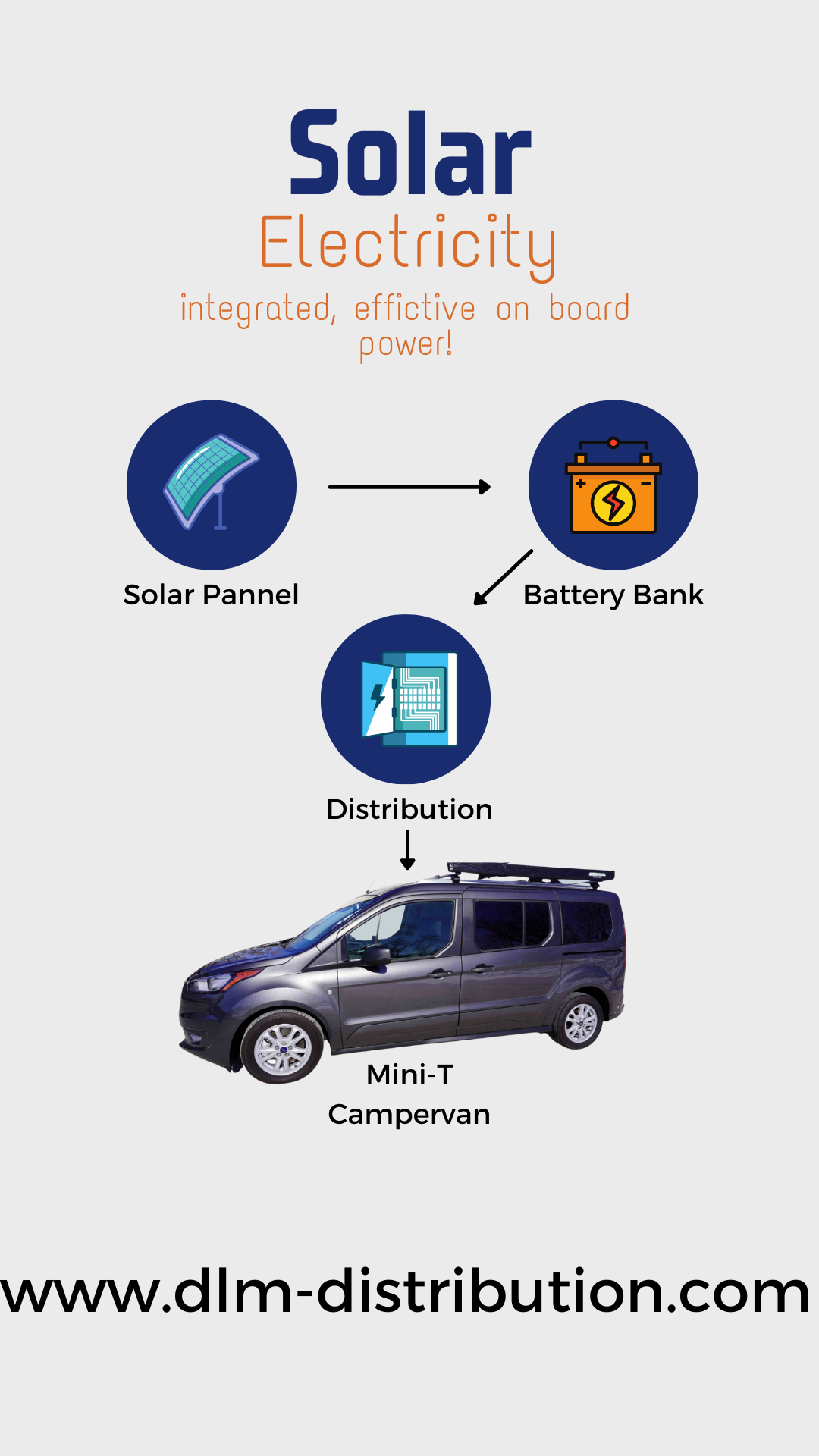NEWS
The power of the sun, though formidable, is not an all-encompassing solution to meet our diverse energy needs. This statement especially holds true in the context of Recreational Vehicles (RVs) or campervans, where solar energy is often mistaken as a singular power source for all onboard appliances and systems. However, a deeper understanding reveals that solar energy is just a piece of a broader energy puzzle, with the linchpin of this configuration being the energy storage system.
One shining example of an effective solar energy and storage integration is seen in campervans such as the Mini-T Campervan. This vehicle showcases how careful engineering and forward-thinking design can harness the power of solar energy for off-grid living, without compromising the comfort and convenience of modern amenities.
Understanding this engineering marvel begins with understanding how solar power works. Solar panels are devices that capture sunlight and convert it into electricity. This conversion process is facilitated by photovoltaic cells within the panels, which transform photons (light particles) into electrons (electricity). It's a robust system for energy production, albeit with its inherent limitations.
An RV's solar power capacity is inherently bound by the physical limitations of the vehicle itself. Even the largest RVs can't accommodate enough solar panels to meet the energy demands of power-hungry appliances such as air-conditioners or electric ovens. In the case of the Mini-T Campervan, however, the design has been cleverly calibrated to match the solar panel wattage and the battery storage capacity. This allows the vehicle to effectively power its integrated microwave, refrigerator, and TV, along with providing 120V power to standard household outlets. This empowers campers to run computers, CPAP machines, phones, and even electric blankets effectively off-grid, day or night.
Storage systems, predominantly batteries in the context of RVs, play a vital role in this energy equation. When an RV's solar panels generate electricity, that power isn't always used immediately. Instead, surplus energy is typically stored in batteries for later use. These storage systems form the backbone of any solar power setup, acting as a buffer that aligns the intermittent solar power generation with the continuous energy demand.
The integration of solar panels with the electrical infrastructure of the Mini-T Campervan is a testament to the sustainable lifestyle that these vehicles promote. With a well-calibrated balance between solar power generation and energy storage, campers can enjoy the comforts of modern living off-grid, while also reducing their reliance on traditional electricity sources.
In conclusion, while solar energy plays a critical role in powering RVs, it's only one part of a broader energy ecosystem. Understanding and appreciating the interplay between solar power and storage systems is key to efficient and sustainable energy usage. The Mini-T Campervan stands as a testament to this understanding, demonstrating how a well-designed energy system can lead to a more enjoyable, cost-effective, and sustainable camping experience.
Happy Camping!

DLM-Distribution / Campervans is a licensed manufacture and dealer located in Lake Crystal Minnesota serving clients around the country
Contact Dave: 651-285-7089 or Candy: 507-382-9446 today!
